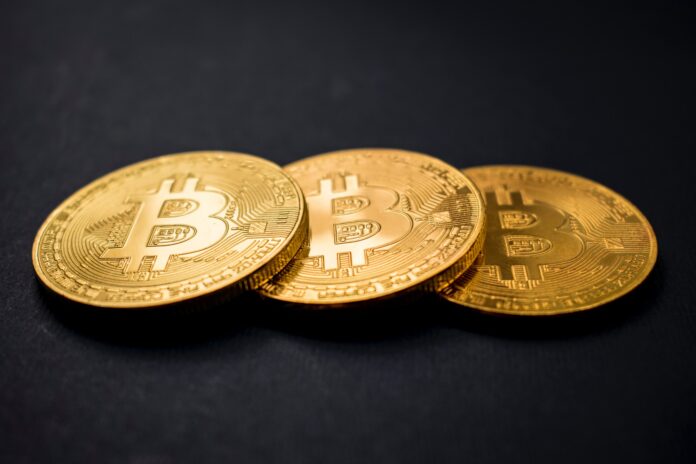A few days ago, a new version of the most widely used Bitcoin implementation, Bitcoin Core, was released. Version 24.0 includes the configuration “mempoolfullrbf”, which has already been the subject of lively discussion within the Bitcoin community for several weeks, in addition to numerous other undisputed updates.
At issue is the replace-by-fee (RBF) feature, a mempool policy that allows nodes to decide between competing unconfirmed transactions based on the fee rate.
RBF allows senders to replace an unconfirmed transaction in the mempool with another transaction. This is provided that there is at least one of the same inputs and pays a higher transaction fee.
This way, the creator of a transaction can expedite it if it is stuck in the mempool. Until the upgrade, it was the case that RBF was an opt-in feature.
With Bitcoin Core 24, this is changing as RBF will no longer be optional, but the default. Bitcoin Core has used opt-in (BIP 125) RBF since 0.12.0.
Critics fear that this decision will open the door to abuse by shaking the confidence that unconfirmed transactions are accepted.
Why RBF Is Such A Big Deal For Bitcoin
There are industry players that use these “zero-confirmation transactions” in their applications. Bitcoin ATMs are one example. Customer transactions are processed immediately at ATMs even though the transaction has not yet been included in a block.
Most operators view the likelihood of something going wrong with the transaction as very low and focus on the customer experience. “This is something everyone knows is theoretically dangerous but hasn’t been an issue,” said Thomas Fahrer co-founder of Appolo.
Alternatively, the customer would have to wait outside the machine for the transaction to be confirmed, which can sometimes take several hours depending on the transaction fee and network load.
Thus, some companies relied on the vast majority of full nodes to refuse transactions that have not actively opted in to the RBF option. With “Full RBF,” this option is eliminated.
“The chances of facing a double spend have gone up significantly *IF* you’re someone who’s accepting 0-conf transactions,” Fahrer stated.
Full RBF Follows Satoshi’s Vision Of Bitcoin
As Bitcoin developer Gloria Zhao wrote via GitHub, such assumptions make the proof-of-work mechanism absurd, which is why opting for full RBF is the only right decision.
“Full RBF is the natural state of the network. The point of Bitcoin blocks, PoW, etc. is to prevent double spending; there has never been a guarantee of the finality of unconfirmed transactions,” Zhao said.
Another strong argument for “Full RBF” is that companies will be strongly motivated to rely on Lightning payments instead of zero-conf transactions.
In addition, the implementation will strengthen the struggling miners, as it is assumed that the replace-by-fee mechanism will increase revenues.
However, an engineer under the pseudonym of Rijndael emphasized that Bitcoin Core 24 has many other great things in store and summarized them in a Twitter thread.
Most of the discussion lately about Bitcoin Core 24 has been around the new “full RBF” mempool policy option. But there’s lots of other great stuff in this release! Here are some things you might have missed 👇
— Rijndael (@rot13maxi) November 26, 2022
At press time, the BTC price was trading at $16,222, trying to overcome the resistance at $16,310.
Credit: Source link






















 Bitcoin
Bitcoin  Ethereum
Ethereum  Tether
Tether  Solana
Solana  XRP
XRP  Dogecoin
Dogecoin  USDC
USDC  Cardano
Cardano  Lido Staked Ether
Lido Staked Ether  TRON
TRON  Avalanche
Avalanche  Toncoin
Toncoin  Shiba Inu
Shiba Inu  Stellar
Stellar  Wrapped stETH
Wrapped stETH  Wrapped Bitcoin
Wrapped Bitcoin  Polkadot
Polkadot  Chainlink
Chainlink  Bitcoin Cash
Bitcoin Cash  WETH
WETH  Sui
Sui  Pepe
Pepe  LEO Token
LEO Token  NEAR Protocol
NEAR Protocol  Litecoin
Litecoin  Aptos
Aptos  Uniswap
Uniswap  Wrapped eETH
Wrapped eETH  Hedera
Hedera  Cronos
Cronos  Internet Computer
Internet Computer  USDS
USDS  POL (ex-MATIC)
POL (ex-MATIC)  Ethereum Classic
Ethereum Classic  Render
Render  Bittensor
Bittensor  Ethena USDe
Ethena USDe  Artificial Superintelligence Alliance
Artificial Superintelligence Alliance  Bonk
Bonk  WhiteBIT Coin
WhiteBIT Coin  Arbitrum
Arbitrum  Dai
Dai  MANTRA
MANTRA  dogwifhat
dogwifhat  Filecoin
Filecoin  Cosmos Hub
Cosmos Hub  OKB
OKB 
